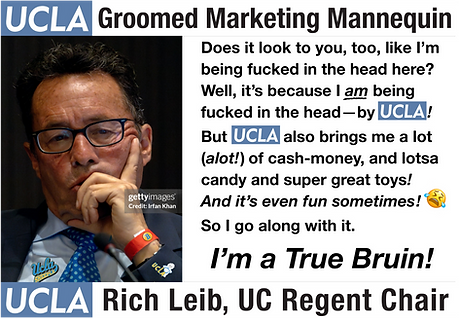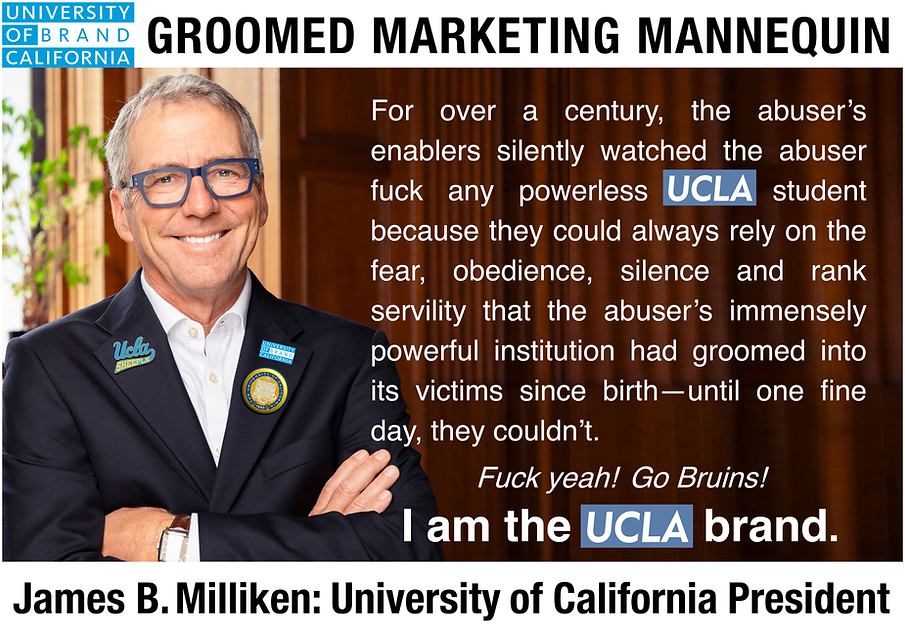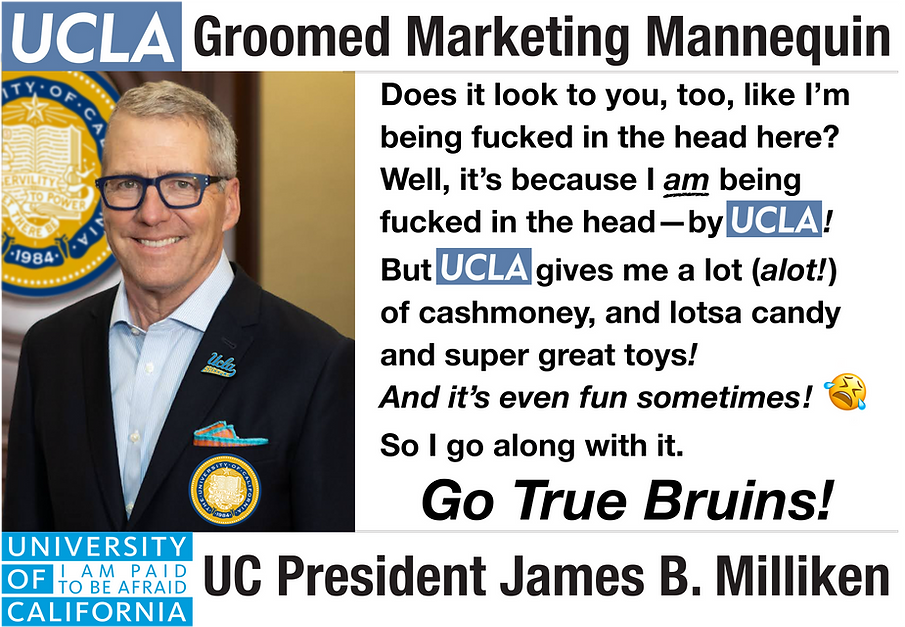top of page
We get frequent news reports on university admissions, but “our free press” does not report how “the nation’s most popular public university” expels U.C.L.A. students. Why?
We get frequent reports in The New York Times, The Wall Street Journal, The Washington Post and the Los Angeles Times on how our nation's top universities admit their students, for good reason. In stark contrast, we do not get reports on how these universities kick their students out, also for good reason: a story that draws such clear parallels between the abuse of power revealed in the Catholic Church scandals and UCLA—currently "the most sought-after university in the nation"—that it threatens to expose how the most powerful public university system in the U.S. actually operates beneath the quasi-religious "brand" UCLA uses to market itself worldwide. I see no other way to explain why no one in the University of California is being publicly questioned about these facts and these UCLA faculty statements in the story of this student expulsion from UCLA. (This story would also tell how I got these UCLA faculty statements some ten years after UCLA kicked me out of a Ph.D. program in the UCLA Graduate School of Education.)
Coincidentally, this story is now quite timely thanks to the ongoing #MeToo movement, as it contains some of the same reasons for why many women waited decades before coming forth with their own stories of abuse by men and women in positions of immense institutional power.
Furthermore, I think it's important to point out that "our [privately-owned, corporate-sponsored] free press" can go after the Catholic Church because these powerful private companies largely do not draw their top governing board members from the high priests of the Catholic Church. Rather, the New York Times and its multinational corporate sponsors draw their governing board members almost exclusively from the educated classes coming out of our nation's elite universities. Therefore, I think the problem with this story here is that it threatens an extremely powerful segment of the educated classes by revealing how flagrantly the Corporation of The Regents of the University of California's presidents, chancellors, vice chancellors, and deans abuse their immense power against those with the least power: University of California students.
On this website I'm publishing UCLA documents and UCLA faculty statements in an effort to expose this abuse of University of California students, and to show how this abuse of power against UC students has become an integral part of how the most powerful public university system in the U.S. actually operates on its students and faculty—i.e., following the UC motto, "Let There Be Light" on the University of California. Of course, it goes without saying that even with this light, just as it was in the Catholic Church, our collective silence only ensures that the University of California will continue to abuse University of California students. But these facts and UCLA faculty statements remain here in order to keep light on forms of abuse also found in the Catholic Church scandals—only this time around, the University of California's administrators are openly concealing their abuse of UC students beneath their revered caps and gowns of higher education.





.png)

%20copy.png)



.png)
.png)

.png)







“The worst of all possibilities is for a person to be apathetic in the face of evil. It is far better to work oneself into an ambiguous situation than remain silent.”* Gabriel Kolko
“[W]hat is monstrous [and, therefore, who is monstrous] is not infrequently contained in what is ‘normal,’ in what is felt by the great majority to be ‘quite normal and natural.’”* Alice Miller [words in brackets, mine]

.png)
When we the public do not hold accountable those we entrust to hold real power accountable, we the public get these for "our independent journalists" and we the public get these for "our free press."

.png)
.png)




* A crucial contradiction lies between Kolko and Miller's statements that might not be readily apparent: Kolko tells us that we can see this evil; Miller (and history) tells us that not infrequently, "the great majority" cannot. Therefore, we must do work that makes this contradiction—and this evil—readily apparent to everyone, so that we can end this evil.
bottom of page

